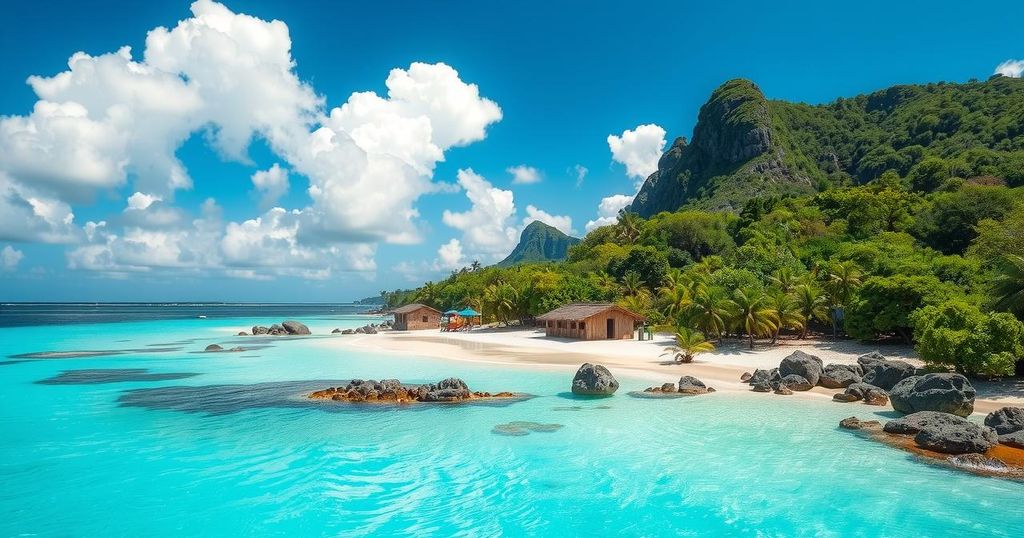Prime Minister Modi’s recent visit emphasizes India’s commitment to strengthening its bilateral partnership with Mauritius, a nation with significant Indian heritage. The UK-Mauritius agreement acknowledges Mauritius’s sovereignty over Chagos and highlights geopolitical implications. As global powers like China expand their influence in the Indian Ocean, India’s focus on empowering Mauritius showcases the evolving nature of regional cooperation and security dynamics.
India and Mauritius share a strong bilateral strategic partnership, emphasized by Prime Minister Narendra Modi’s recent visit. The Indian-origin population in Mauritius, comprising nearly 70% of its 1.3 million residents, underscores the deep ties between Delhi and Port Louis, with Modi’s visit aiming to enhance this relationship further.
Modi’s previous visit in 2015 highlighted the geopolitical importance of the Western Indian Ocean islands. His speeches underscored India’s SAGAR initiative, stressing the necessity of prioritizing the Indian Ocean in India’s diplomatic agenda amidst an increasingly contested geopolitical landscape.
Over the last decade, the region has seen influence from several global players competing for dominance, elevating India’s necessity to enhance its engagement in Mauritius. Importantly, Mauritius possesses its own geopolitical identity, separate from India, despite shared ethnic ties.
Mauritius has a rich colonial history, having been ruled by various European powers. The recent agreement between Mauritius and Britain regarding the Chagos archipelago marks a significant step in rectifying colonial injustices. Independence in 1968 marked the beginning of a long struggle against remnants of colonialism in the region.
The new agreement confirms Mauritius’s sovereignty over Chagos as per the International Court of Justice and recognizes its humanatarian implications for resettled local populations. The agreement also signals the potential for long-term environmental cooperation between Mauritius and the UK.
From a geopolitical standpoint, Mauritius’s decision to extend the lease on Diego Garcia enhances U.S. military presence in the region, signifying a counterbalance to Chinese influence. Critics argue it facilitates Chinese dominance; however, it maintains U.S. strength in the Indian Ocean.
India’s involvement in facilitating this agreement demonstrates its commitment to regional security concerns, particularly regarding China’s expanding naval presence. India’s logistics projects on Agaléga Island further highlight Mauritius’s crucial geopolitical role.
Historically, Mauritius was critical for European exploration, serving as a key location for navigation in the Indian Ocean. Previous global conflicts have brought the islands back into strategic focus, especially as geopolitical dynamics evolve with new actors, like China, gaining influence.
China’s engagements in Mauritius, through military and economic investments, demonstrate its recognition of the region’s importance. This is combined with attention from other powers, including Europe and Gulf states, who aim to increase their strategic roles in the area.
While navigating its past, post-colonial Mauritius has established itself as a financial hub, fostering connections between Africa, the Middle East, and Asia. Its strategic position allows for self-sustaining relations with major powers, enhancing its autonomy on the global stage.
India’s partnership with Mauritius transcends ethnic ties, focusing on mutual benefit and cooperation. The ongoing collaboration between both nations reflects India’s intentions to fortify its strategic relationships, particularly highlighted during Modi’s visit.
Prime Minister Modi’s visit to Mauritius reflects India’s strategic commitment to enhancing its partnership with the island nation. The historical and geopolitical significance of Mauritius shapes its role in the Indian Ocean, amidst increasing global contestations. The recent UK-Mauritius agreement represents a vital corridor for recapturing sovereignty and addressing humanitarian concerns, while solidifying geopolitical ties with the US. As China grows in influence, India’s collaboration with Mauritius aims at bolstering regional security and sovereignty. This partnership represents a shift from shared ethnicity to a broader strategic alliance based on mutual benefit and regional stability.
Original Source: indianexpress.com






